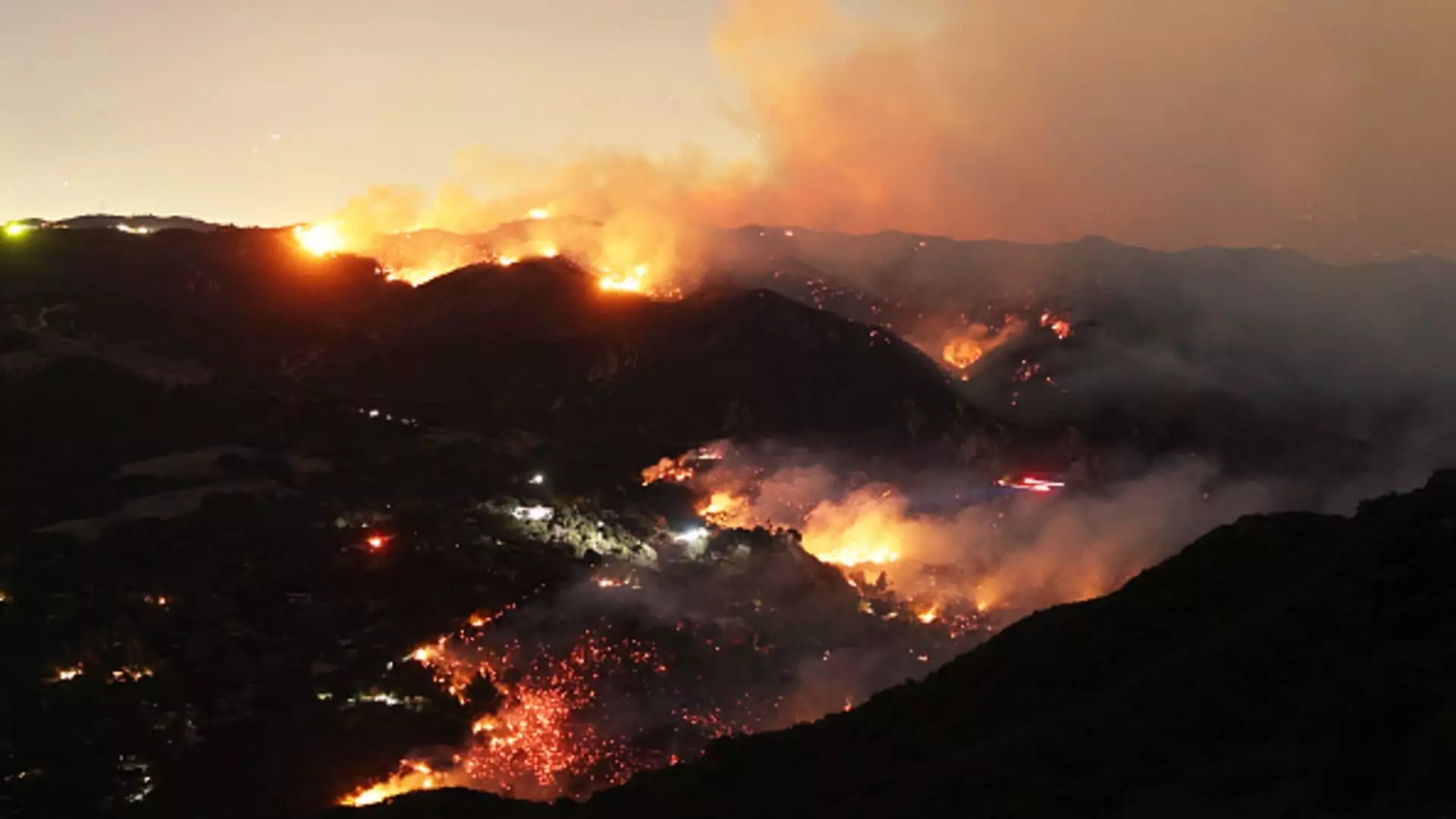In a scene reminiscent of nature’s unchecked fury, Southern California finds itself grappling with unprecedented wildfires that have turned vast stretches of land into scorched earth. Over a week’s time, these relentless blazes have engulfed an alarming 40,000 acres in the Greater Los Angeles area alone, leaving behind a trail of devastation that includes more than 12,300 structures razed to the ground. As reported by NBC News, the gravity of the situation has led to evacuation orders affecting approximately 88,000 residents, with an additional 89,000 residents under evacuation warnings. The financial repercussions of these catastrophes are staggering, with estimates suggesting insured losses could soar beyond $20 billion, a figure corroborated by reports from financial institutions like JPMorgan and Wells Fargo.
The sheer magnitude of the destruction prompts a crucial question: how should affected residents navigate the complex aftermath of such disasters? For those facing the uncertainty of rebuilding their lives, initiating the insurance process is a vital first step.
As fires rage on, residents displaced from their homes are urged to act swiftly in filing insurance claims. According to Karl Susman, an established insurance broker in Los Angeles, speed is essential in this process. “Get your claim filed as quickly as you can,” he advises, underscoring the importance of beginning this process even in the absence of complete documentation. The onslaught of claims will likely result in delays from insurers; hence, initiating contact sooner rather than later could facilitate a smoother recovery process.
For many residents, determining the extent of damage and the ensuing claim process can feel overwhelming, especially amidst the chaos of evacuations. Yet, experts agree that clarity and communication with insurance providers is key. This means not waiting for the final assessment of your property; instead, begin the claims process immediately, based on the information available at hand.
There exists a common misconception that renters are left without resources in wildfire situations. However, Shannon Martin, a licensed insurance agent, asserts that renters have access to similar insurance recovery mechanisms as homeowners do. The nuances between these policies can impact the recovery process significantly. Renters should also assess their “loss of use” coverage, which can provide financial relief by covering temporary accommodations during the rebuilding phase.
For both categories of insured, it is vital to meticulously document every expense incurred during this recovery period. Jeremy Porter, head of climate implications research at First Street Foundation, stresses the importance of keeping receipts for any essentials purchased, such as food, clothing, and lodging. The principle is straightforward: comprehensive documentation will expedite reimbursements and ease the journey back to normalcy.
When disaster strikes, support systems from various entities can greatly aid those affected. Resources abound through federal and state channels, including the Federal Emergency Management Agency (FEMA). Vulnerable individuals, particularly those with no prior insurance coverage, are encouraged to explore aid options that may become available as recovery efforts unfold. President Joe Biden recently announced assistance payments through FEMA, signifying governmental recognition of the challenges faced by wildfire victims.
Additionally, municipalities are actively collaborating with insurers to provide workshops that guide affected individuals through recovery nuances. The California Insurance Commission has slated workshops that include representatives from various government and insurance agencies, demonstrating a community-oriented approach to navigating this overwhelming crisis.
In the wake of complete or severe property loss, proactive measures become vital. Affected homeowners should immediately contact utility companies to restrict services, potentially easing financial burdens during this recovery phase. Furthermore, those who have lost vehicles to the fire need to explore their auto insurance policies for comprehensive coverage options that may include wildfire damage.
Property tax considerations also become essential for individuals facing extensive damages. Homeowners experiencing losses exceeding $10,000 may qualify for tax relief measures, a potentially overlooked aspect that can ease financial strains amid hardship.
As Southern California steers through this challenging chapter, the resilience of its communities remains paramount. Affected individuals are encouraged to leverage local resources, utilizing charitable initiatives that focus on recovery efforts and financial support. The collaborative spirit witnessed in recovery workshops fosters a sense of unity that is essential during these trying times.
While the fires rage on, the challenge of recovery beckons a concerted effort from individuals, insurers, and local communities alike. By understanding the complexities of insurance claims, leveraging available resources, and documenting every step of their recovery, residents can pave a path towards rebuilding their lives amidst adversity.


Leave a Reply